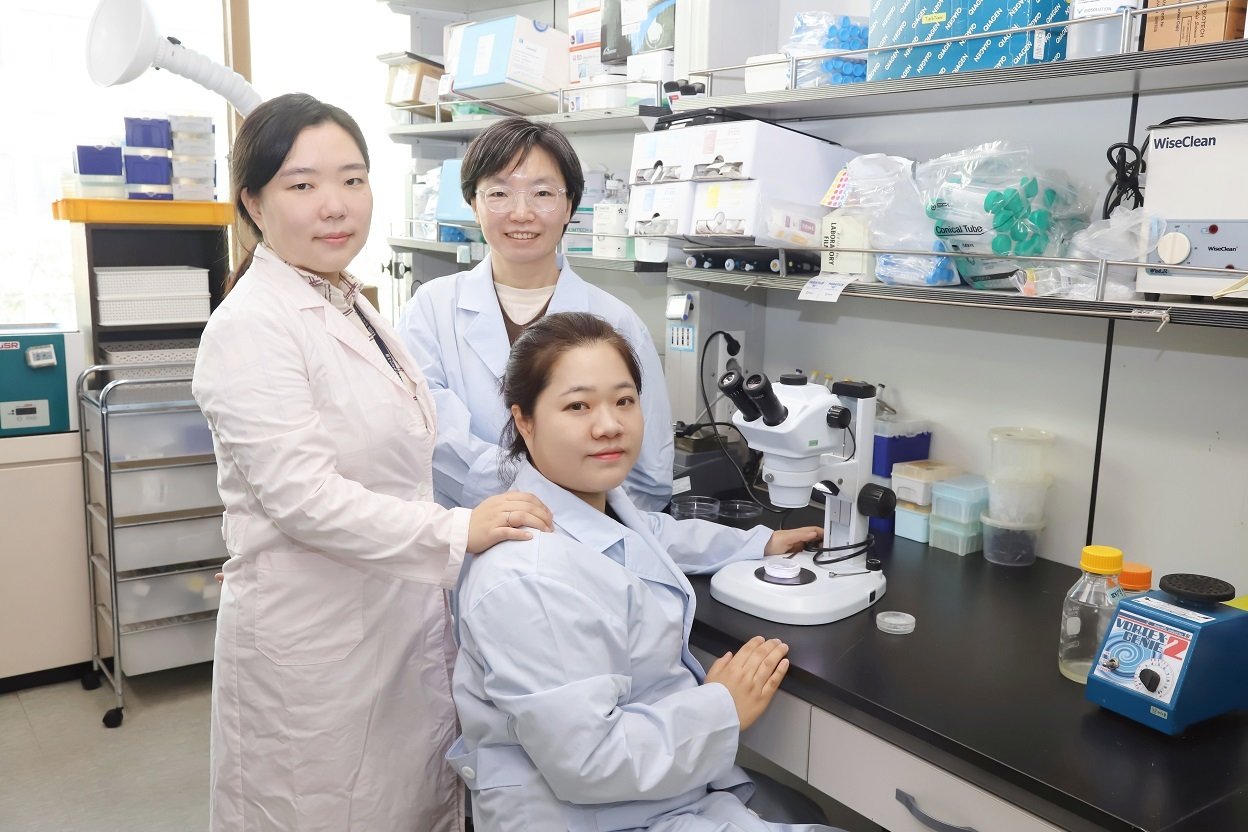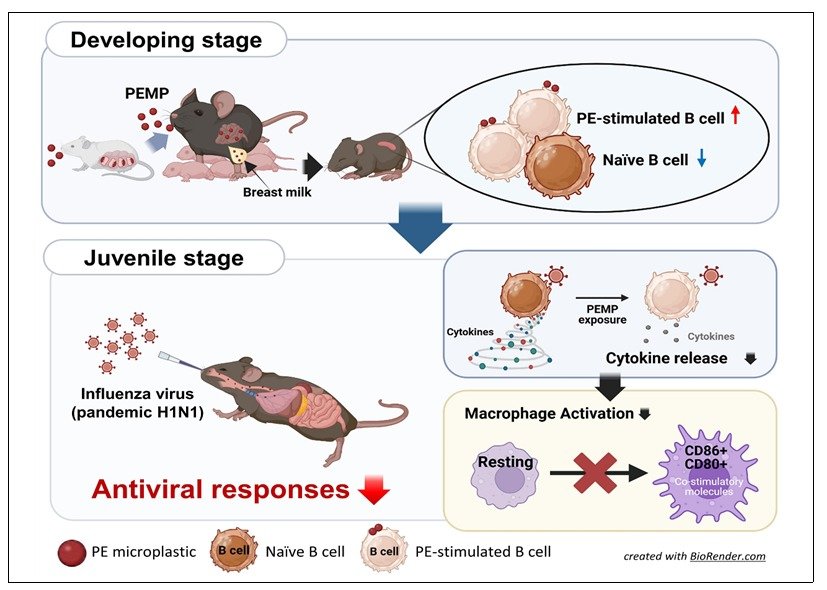
Medical / Environmental Medicine
"Microplastics in Mothers Weaken Babies' Immunity"
Dong-A Ilbo |
Updated 2025.10.28
[Young Old&]
First Identification by Life Research Institute's Lee Dayong Team
“Transferred through breast milk, disrupts child's immune system”
First Identification by Life Research Institute's Lee Dayong Team
“Transferred through breast milk, disrupts child's immune system”
Dr. Lee Dayong's research team. 2025.10.23 Provided by KRIBB/News1
Research findings have emerged indicating that microplastics are transmitted from mother mice to their offspring through breast milk, impairing the immune function of the offspring. The impact of microplastics accumulated in the mother's body on children was unclear, but a domestic research team has identified this for the first time globally. The Korea Research Institute of Bioscience and Biotechnology (KRIBB) announced on the 26th that a research team, including Senior Researcher Lee Dayong from the Bio-Pharmaceutical Translational Research Center, has identified that polyethylene (PE) microplastics ingested by the mother are transmitted to the child through breast milk, resulting in a disrupted immune system that makes the child more susceptible to viral infections.
Polyethylene (PE) microplastics account for 36% of the total plastic production used in disposable plastic products and household goods, and are considered pollutants threatening human health. Plastic products we use daily, such as cups, packaging, and plastic bags, are found in air, water, food, and even within our bodies.
The research team conducted animal experiments using PE, a plastic used in everyday items like cups, packaging, and plastic bags. When mother mice were fed PE microplastics, the microplastics moved into the offspring's body through breast milk. The study found that a large amount of microplastics accumulated in the offspring's spleen. The spleen is an organ that regulates immune cells in the body, and dysfunction can lead to increased susceptibility to infections.
Conceptual diagram of research results showing that microplastics affect the development of antiviral immune responses between mother and offspring. 2025.10.23 Provided by KRIBB/News1
Notably, in the bodies of offspring mice exposed to microplastics, immune cells such as T cells and NK cells decreased, while B cells, which cause inflammation, abnormally increased, clearly indicating an imbalance in the immune system. After microplastics accumulated in the spleen, the offspring mice showed an imbalance in immune cell distribution throughout their growth, with a continuous decrease in the secretion of antiviral immune substances like interferon and inflammatory cytokines. Microplastics are not merely foreign substances residing in the body but disrupt the entire immune development process, weakening infection resistance. When mice exposed to microplastics were infected with H1N1, a type of influenza A virus, their body weight decreased sharply compared to mice not exposed to microplastics. It was also confirmed that the secretion of antiviral immune substances significantly decreased, greatly weakening the ability to suppress the virus.
Senior Researcher Lee stated, “This study scientifically proves for the first time that microplastics do not merely reside in the body but can disrupt the entire immune system across generations,” emphasizing the urgent need for societal efforts to reduce plastic use and minimize exposure to microplastics in daily life through food and water. The research results were published in the international journal 'Journal of Hazardous Materials' on the 15th of this month.
Jang Eun-ji
AI-translated with ChatGPT. Provided as is; original Korean text prevails.
ⓒ dongA.com. All rights reserved. Reproduction, redistribution, or use for AI training prohibited.
Popular News












